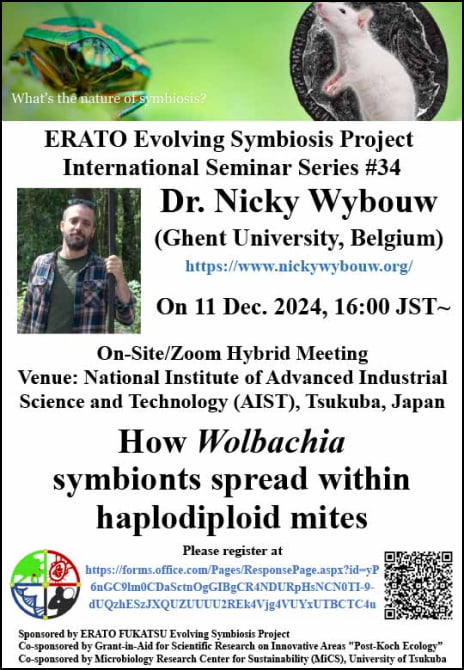ERATO Evolving Symbiosis Project International Seminar Series #34

Abstract: The widespread occurrence of heritable symbionts such as Wolbachia necessitates a mechanistic understanding of how these symbionts spread through natural host populations. We study the underpinning mechanisms using haplodiploid spider mites as model systems, and by integrating molecular, population, and theoretical biology. I will outline our current understanding of three Wolbachia-mediated reproductive phenotypes that drive the spread of infection within spider mites: cytoplasmic incompatibility, parthenogenesis, and sex allocation distortion. The impact of these Wolbachia-mediated phenotypes on several components of the host reproductive physiology will be outlined. I will further describe (candidate) causal Wolbachia genic factors that underpin reproductive phenotypes in spider mites. The talk will focus on how host genetics shapes the strength of Wolbachia-mediated phenotypes and how reciprocal host-symbiont interactions modulate infection spread and persistence. Interestingly, genomic analyses are revealing that interspecific hybridisation and introgression facilitate the acquisition of Wolbachia within certain spider mite genera. Together, these and findings of our colleagues underscore the complexity of the molecular mechanisms that regulate endosymbiosis.
ERATO Evolving Symbiosis Project International Seminar Series #34
Sponsored by ERATO FUKATSU Evolving Symbiosis Project
https://www.jst.go.jp/erato/fukatsu/english/
Co-sponsored by Microbiology Research Center for Sustainability (MiCS), University of Tsukuba
https://www.mics.tsukuba.ac.jp/en


